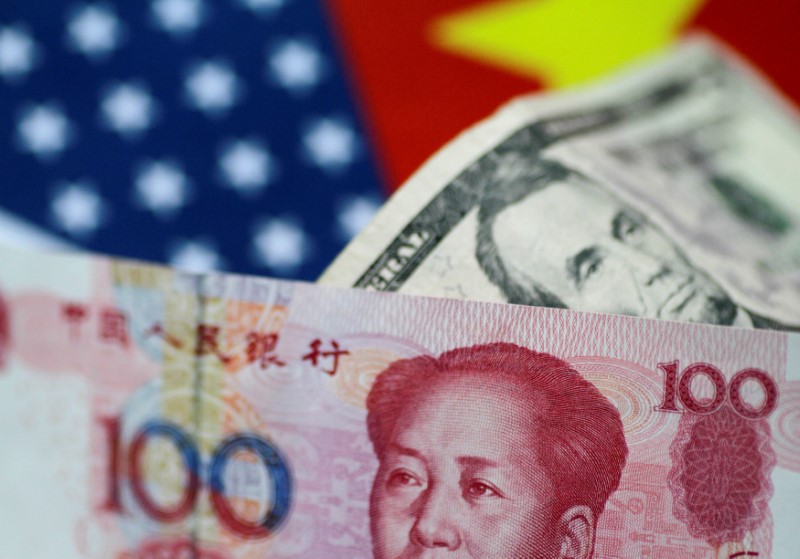By Ambar Warrick
Investing.com-- Most Asian currencies rose slightly on Friday while the dollar retreated in anticipation of U.S. inflation data, with the Chinese yuan set to blaze past its peers this week amid growing optimism over an economic reopening in the country.
Still, broader sentiment remained subdued, with most other Asian units set for weekly losses amid growing fears of higher interest rates and a U.S. recession.
The Chinese yuan rose 0.1% on Friday, and was the best-performing currency in the region this week with a 0.8% jump.
China scaled back several anti-COVID movement curbs and testing measures this week, amid growing public ire towards the strict zero-COVID policy. The move drove up bets that the world’s second-largest economy will recover sharply amid fewer COVID disruptions.
But analysts warned of a sharp spike in COVID infections after the reversal. Weak economic readings for November also showed that the economy has a long road to recovery.
The Japanese yen was among the best performers for the day, rising 0.6% amid a growing number of bets that the Bank of Japan could eventually reverse its ultra-easy monetary policy.
Traders have reportedly begun short-selling Japanese bonds, as inflation in the country surged to a 40-year high in recent months.
The yen was also among the few Asian outliers set for a weekly gain this week, and was trading 0.6% higher over the past seven days.
Most other Asian currencies rose on Friday, but were set to lose for the week. The South Korean won added 0.8%, while the Singapore dollar added 0.2%.
The dollar fell slightly, extending a drop from Thursday as investors positioned for the upcoming U.S. inflation readings. The dollar index and dollar futures both shed 0.2%, but were set to gain about 0.4% for the week.
The U.S. producer price index, due later on Friday, is expected to show that inflation faced by the manufacturing sector eased further in November. The reading is also expected to herald a similar trend in the more closely watched consumer price index, which is due to be released next week.
Markets fear that stronger-than-expected inflation could invite more interest rate hikes by the Federal Reserve, given that the bank has signaled that its stance on monetary policy will be largely driven by the path of inflation.
Such a scenario is likely to herald more pressure on Asian currencies, which were battered by rising rates this year.
The Indian rupee was flat on Friday, but was among the worst regional performers for the week with an over 1% drop. The currency fell even as the Reserve Bank hiked interest rates and signaled more tightening measures to combat inflation.
